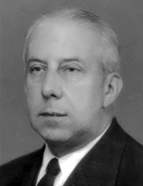

However, he pointed to it, not immediately, but in the long term. Only the monarchy corresponded to the natural demands of political society, and only it corresponded to the demands he attached to supreme political power. Why? Because he felt that ‘Portugal ’ s political problem remained unsolved’ ( Idem , ibidem ), because it lacked the dome of the building that the Estado Novo had intended to erect. This dome would be built through the ‘permanence and continuity’ of the supreme judiciary of the state , and this would only be achieved with the approval of its ‘lifelong and hereditary’ character ( Idem , p. 731). This approach pointed irrefutably to the superiority of royalty since it alone corresponded to the nature of society and, in this case, to the History of Portugal.
In short, although Caetano Beirão never disregarded the benefits of the Estado Novo and although his position as a Member of Parliament did not depend on his monarchical affiliation, he was still a loyal supporter of the monarchy. In fact, over the years , he showed consistency of thought and unconditional support for the principles and doctrines he upheld. He believed that the monarchy was the only political regime suitable for Portugal and that the republic, in both its moderate and radical forms, was ‘unnatural’ for the Portuguese nation, which only found the indisputable roots of Portugueseness in identity and tradition. Passionate about these ideals, which he considered fundamental for the resurgence of the homeland, he championed them with his pen in countless texts published in the periodical and non-periodical press and never stopped fighting those that were adverse or contrary to him. Among the titles he published were A Nação [The Nation] and A Monarquia [The Monarchy] in 1917, A Acção Realista [The Realistic Action] in the 1920s and A Voz [The voice] in the 1940s.
Although he focussed almost exclusively on the Portuguese reality, the ideology he transmitted was part of the European context where names such as Maritain, Maurras, Renan , and Bordeaux, whom he cited, were prominent, and as such placed him among the emerging group of the so-called right. To a certain extent following this line of thought, a few months after leaving university, he put together political texts published between 1910 and 1919, first in A Nação [The Nation] and then in A Monarquia [The Monarchy ] , which he published in 1919 under the title Uma Campanha Tradicionalista [A T raditionalist Campaign] , accompanied by a study/preface signed by António Sardinha.
This work is financed by national funds through FCT - Foundation for Science and Technology, I.P, in the scope of the projects UIDB/04311/2020 and UIDP/04311/2020.
